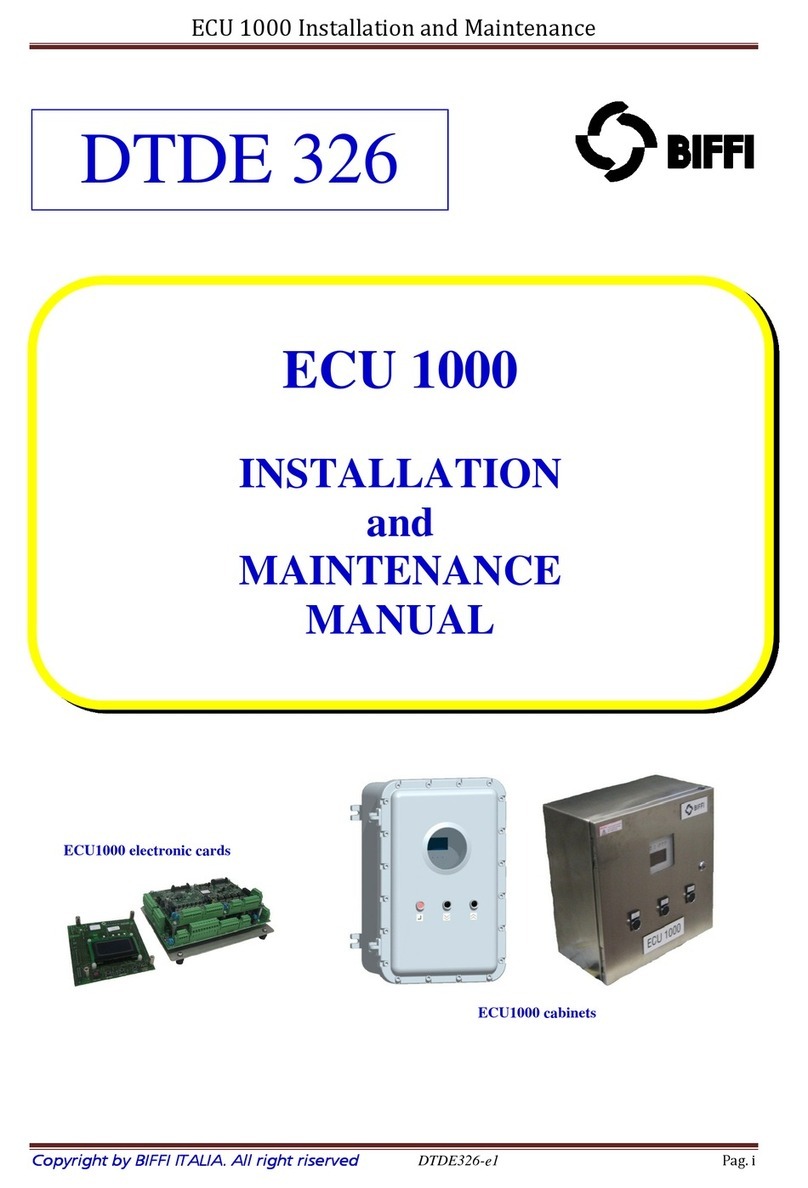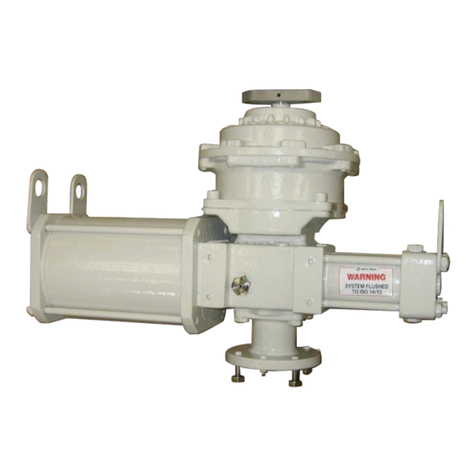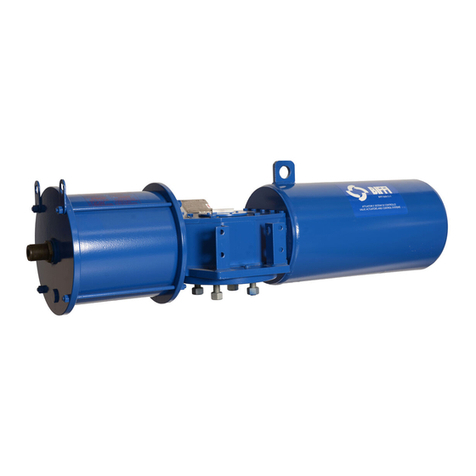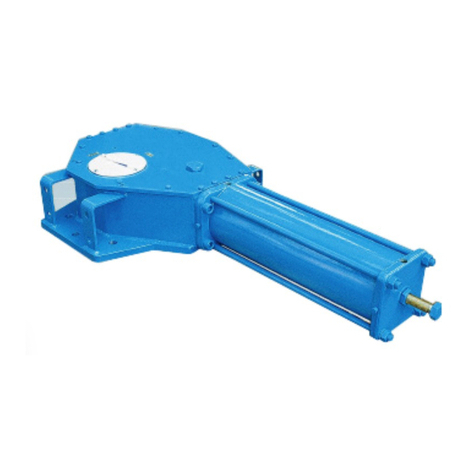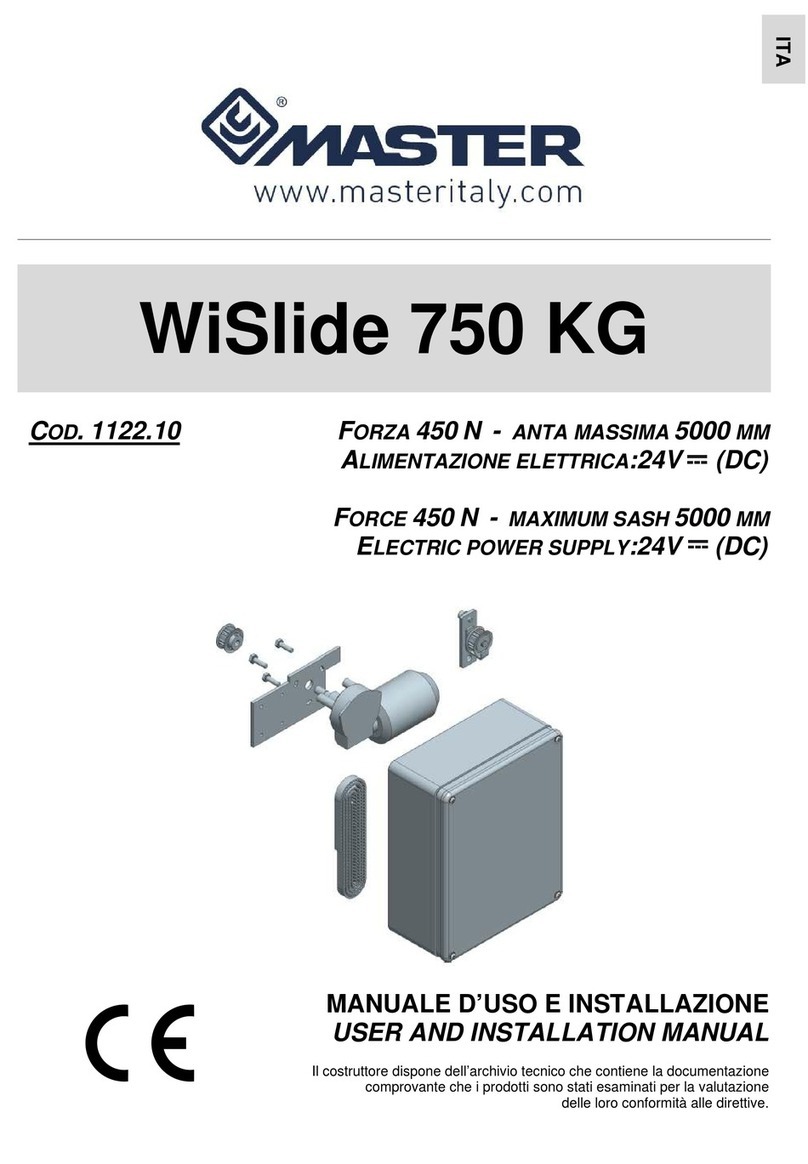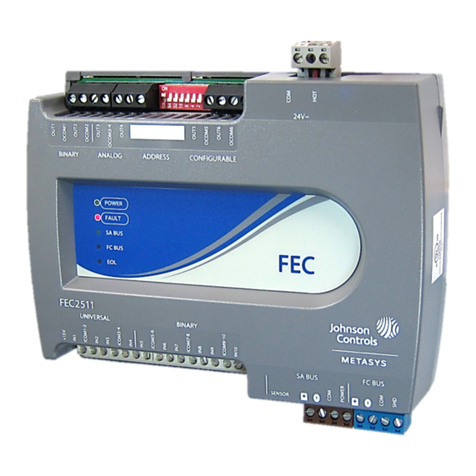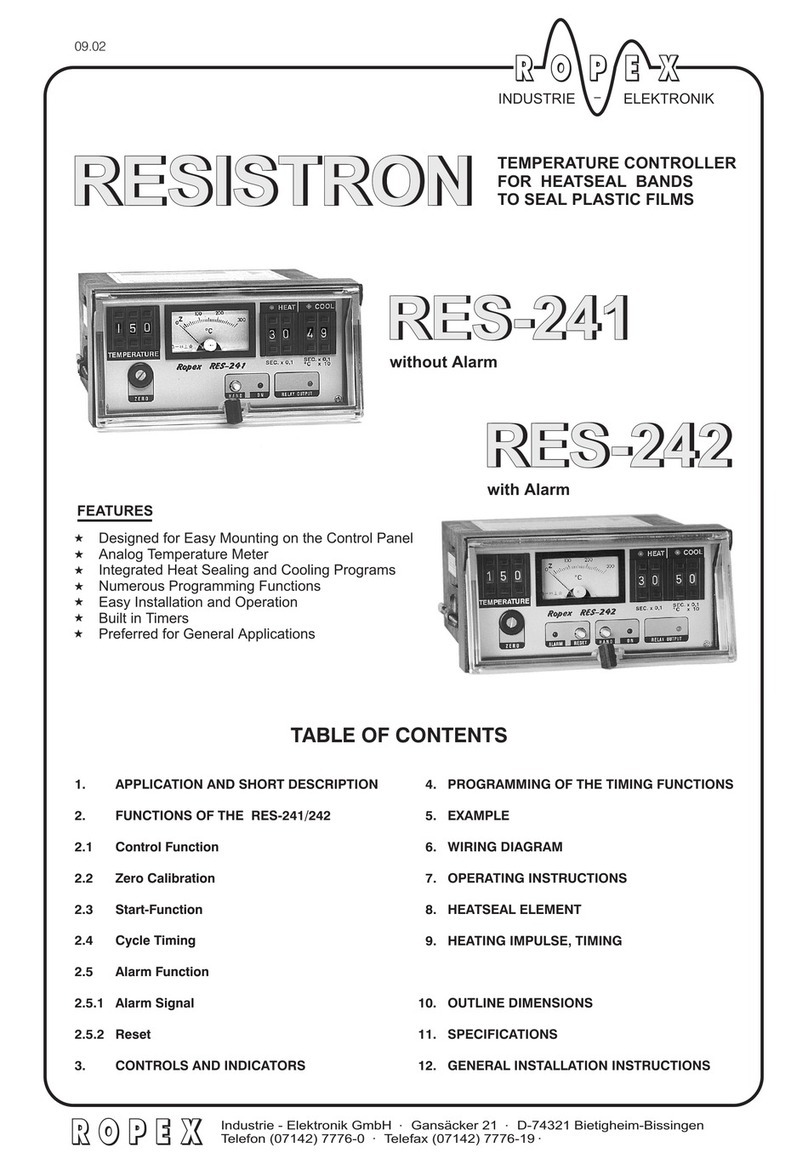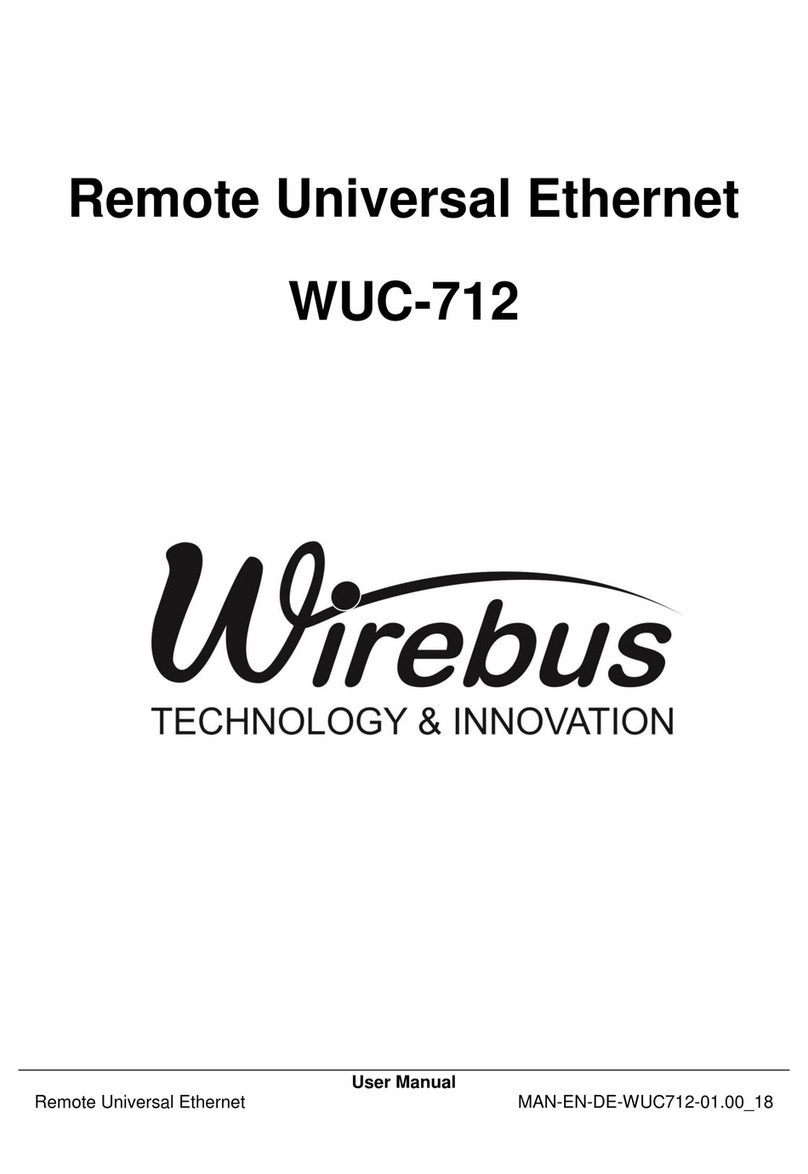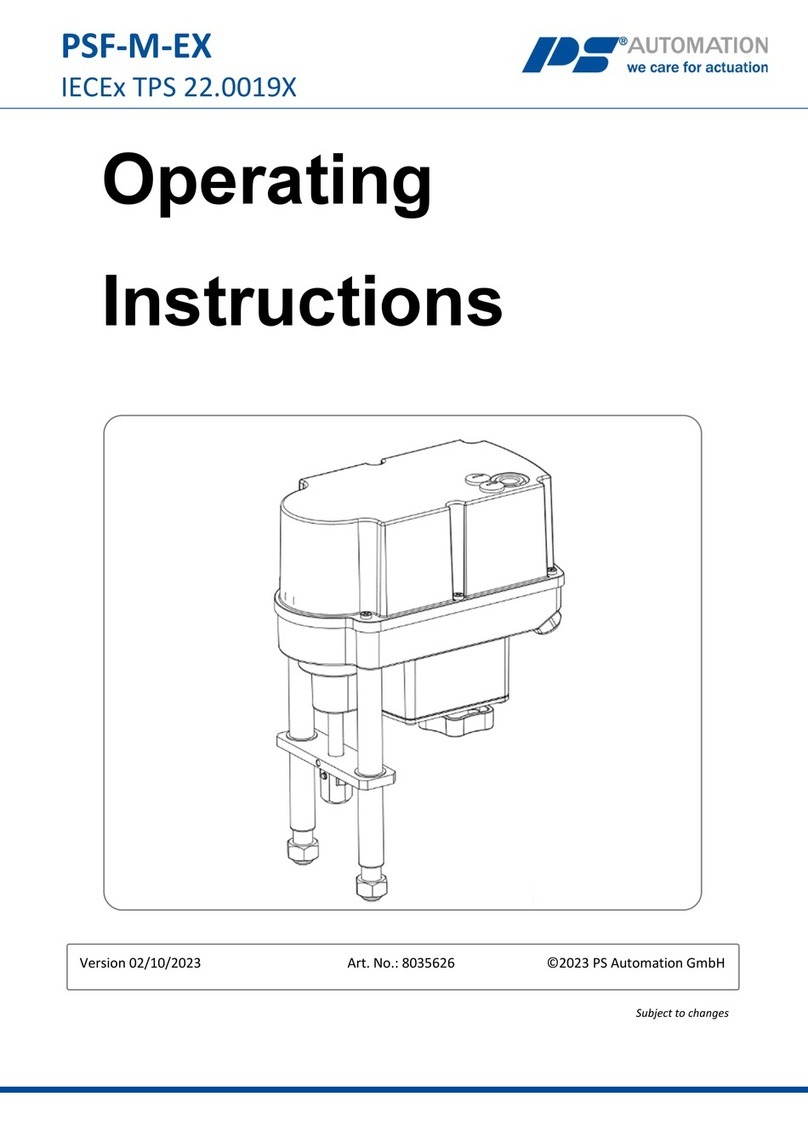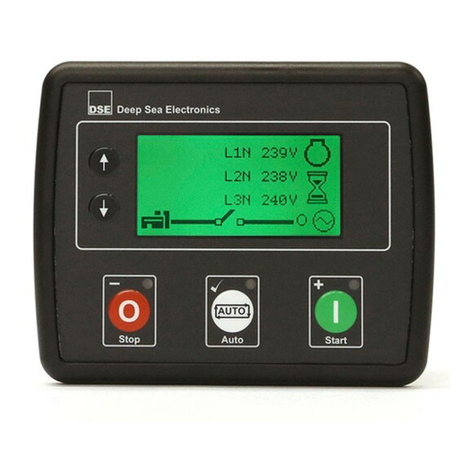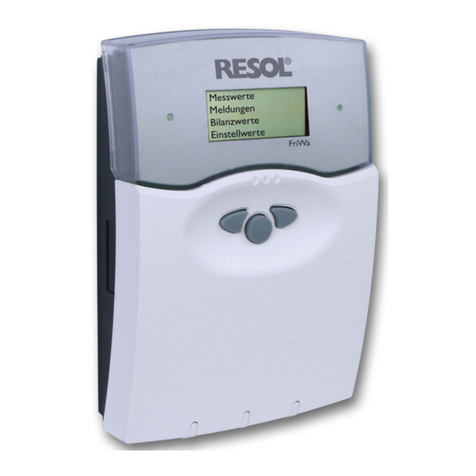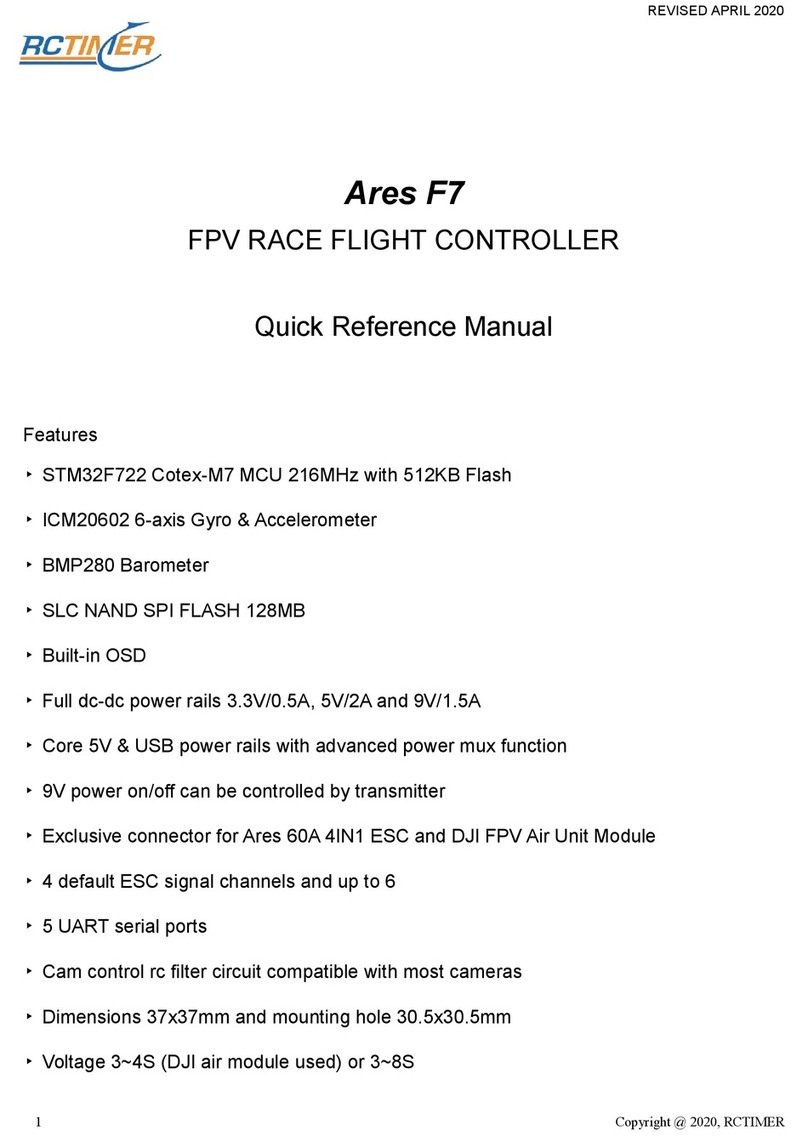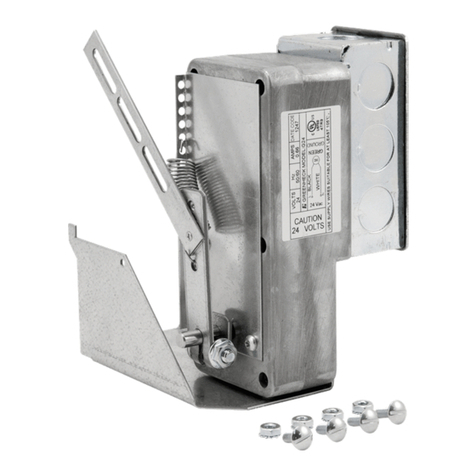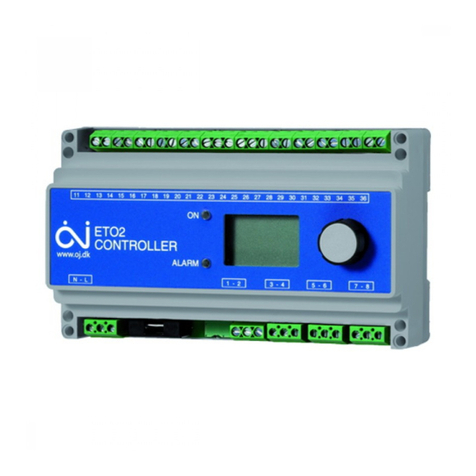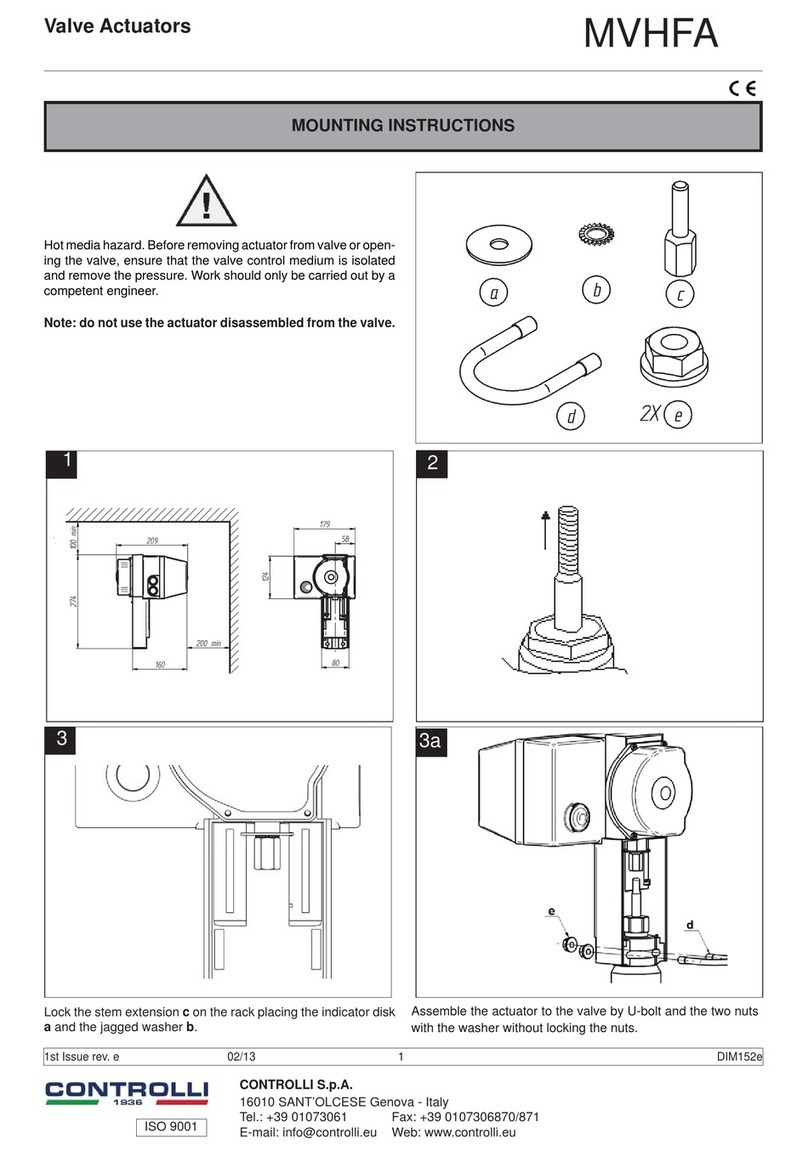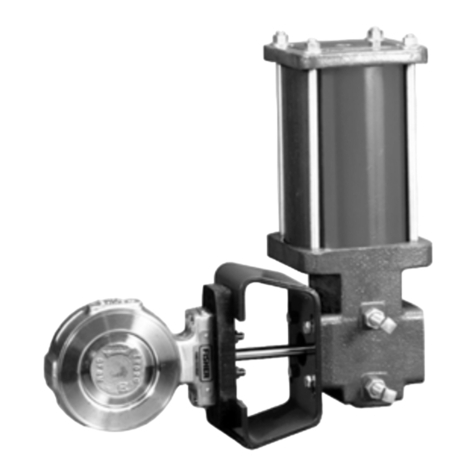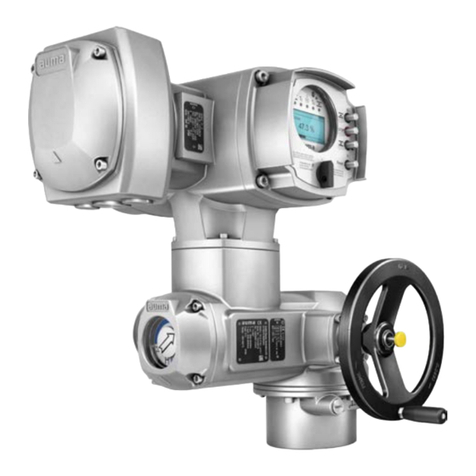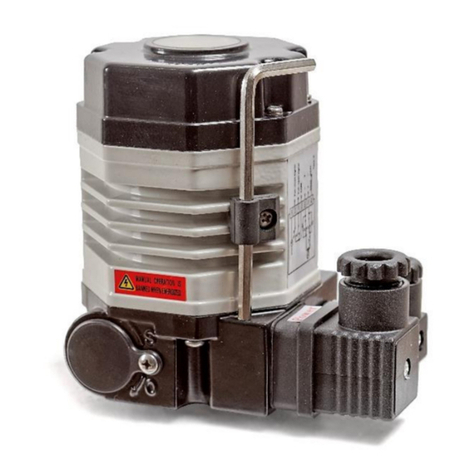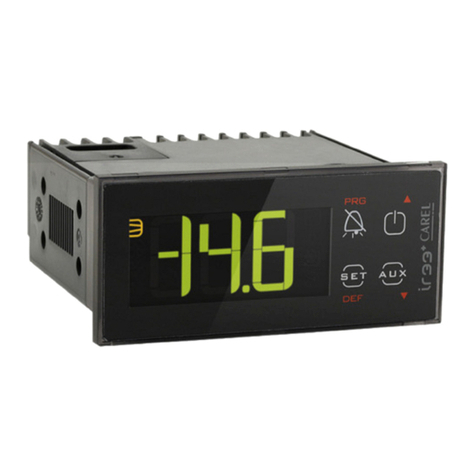BIFFI HLAS User manual

HLAS –Single acting hydraulic linear actuator
Use and maintenance manual
© Copyright by BIFFI Italia. All right reserved. Pag. 1
Contents may change without notice
MAN 620
Use and maintenance manual
HLAS
SINGLE ACTING SPRING-
RETURN HYDRAULIC
LINEAR ACTUATOR
4
18/02/19
Updated data-plate
Sassi
Orefici
Vigliano
3
18/04/16
Updated applicable
regulation (chapter 1.1.1)
Ermanni
Orefici
Vigliano
2
31/07/12
General update
Ermanni
Stoto
Vigliano
1
25/06/10
General update
Ermanni
Stoto
Vigliano
0
05/05/99
Document release
Lazzarini
Aliani
Ziveri
Rev.
Date
Description
Prepared
Checked
Approved

HLAS –Single acting hydraulic linear actuator
Use and maintenance manual
© Copyright by BIFFI Italia. All right reserved. Pag. 2
Contents may change without notice
TABLE OF CONTENTS
1General warnings ................................................................ 4
1.1 Generalities.................................................................................4
1.1.1Applicable regulation...............................................................4
1.1.2Terms and conditions..............................................................4
1.2 Identification plate .......................................................................5
1.3 introducing the actuator...............................................................5
1.4 data sheet ...................................................................................7
2Installation........................................................................... 7
2.1 checks upon actuator receipt ......................................................7
2.2 actuator handling.........................................................................7
2.3 storage........................................................................................9
2.4 actuator assembly on the valve...................................................9
2.4.1Types of assembly ..................................................................9
2.4.2Assembly procedure................................................................9
2.5 hydraulic connections................................................................13
2.6 electrical connections (if any)....................................................13
2.7 commissioning...........................................................................14
3Operation and use ............................................................. 15
3.1 operation description.................................................................15
3.2 residual risks .............................................................................16
3.3 operations (examples)...............................................................16
3.4 calibration of the linear stroke....................................................18
3.5 calibration of microswitches (if foreseen) ..................................20
3.6 calibration of the operation time ................................................22
4Operational tests and inspections...................................... 23
5Maintenance ...................................................................... 24
5.1 periodic maintenance................................................................24
5.1.1Check and restore oil level in the manual hand-pump...........25
5.2 Extraordinary maintenance .......................................................26
5.2.1Lubrication of mechanism.............................................................26
5.2.2 Replacing the seals of the cylinder........................................27
5.3 Dismantling and demolition........................................................32
6Troubleshooting ................................................................ 33
6.1 failure or breakdown research...................................................33
7Layouts.............................................................................. 34
7.1 Spare parts order ......................................................................34
7.2 parts-list for maintenance and replacing procedure...................35
8 Date report for maintenance operations ............................ 41

HLAS –Single acting hydraulic linear actuator
Use and maintenance manual
© Copyright by BIFFI Italia. All right reserved. Pag. 3
Contents may change without notice
NOTE:
BIFFI Italia S.r.l pays the highest attention to collecting and verifying the
documentation contained in this user manual. However BIFFI Italia S.r.l. is not
liable for any mistakes contained in this manual, for damage or accidents due to
the use of the latter. The information contained is of exclusive reserved ownership
of BIFFI Italia S.r.l and may be modified without prior notice. All rights reserved.

HLAS –Single acting hydraulic linear actuator
Use and maintenance manual
© Copyright by BIFFI Italia. All right reserved. Pag. 4
Contents may change without notice
1General warnings
The manual is an integral part of the machine, it should
be carefully read before carrying out any operation and
it should be kept for future references.
1.1 GENERALITIES
BIFFI Italia S.r.l actuators are conceived, manufactured and
controlled according to the Quality Control System in compliance with
EN-ISO 9001 international regulation.
1.1.1 Applicable regulation
EN ISO 12100:2010: Safety of machinery –General principles for
design –Risk assessment and risk reduction
2006/42/EC: Machine directive.
2014/68/EU: Directive for pressure PED equipment
2014/35/EU: Directive for low voltage equipment
2014/30/EU: Directive for the electromagnetic compatibility
2014/34/EU: Directive and safety instructions for use in
hazardous area
1.1.2 Terms and conditions
Biffi Italia srl guarantees that all the items produced are free of
defects in workmanship and manufacturing materials and meet
relevant current specifications, provided they are installed, used and
serviced according to the instructions contained in the present
manual. The warranty can last either one year from the date of
installation by the initial user of the product, or eighteen months from
the date of shipment to the initial user, depending on which event
occurs first. All detailed warranty conditions are specified in the
documentation forwarded together with the product. This warranty
does not cover special products or components not warranted by
subcontractors, or materials that were used or installed improperly or
were modified or repaired by unauthorized staff. In the event that a
fault condition be caused by improper installation, maintenance or
use, or by irregular working conditions, the repairs will be charged
according to applicable fees. The warranty and Biffi Italia srl
liability shall lapse in the event that any modification or
tampering whatsoever be performed on the actuator.

HLAS –Single acting hydraulic linear actuator
Use and maintenance manual
© Copyright by BIFFI Italia. All right reserved. Pag. 5
Contents may change without notice
1.2 IDENTIFICATION PLATE
It is forbidden to modify the information and the marks without
previous written authorization by BIFFI Italia S.r.l.
The plate fastened on the actuator contains the following information
(Figure1).
Figure 1 –Data plate
1.3 INTRODUCING THE ACTUATOR
HLAS single acting hydraulic linear actuators, are suitable for the
operation of linear valves ( wedge gate valves, through conduit gate
valves) for ON-OFF and modulating heavy-duty service.
The actuator is made up of an hydraulic cylinder, a spring cartridge
and a mounting pedestal complete with a joint for the coupling to the
valve stem of actuator output stem. The valve is actuated in opening
and in closing position by the actuator hydraulic cylinder in one
direction and by the spring unit in the other direction.
The output thrust of spring unit can be downward or upward
according to valve operation requirements ( spring to open, spring to
close, direct acting valve , reverse acting valve).
The spring return pack incorporates up to four spring , fully
encapsulated in a factory welded cartridge: this assures safety
conditions to personnel and simplifies the assembly.

HLAS –Single acting hydraulic linear actuator
Use and maintenance manual
© Copyright by BIFFI Italia. All right reserved. Pag. 6
Contents may change without notice
The linear stroke of the valve is adjustable by means of the external
mechanical stop for upward position and by the adjustment of the
coupling of valve stem to actuator joint for the downward position.
The actuator pedestal has a flange with threaded holes to fix the
actuator to the valve.
BIFFI can supply different types of control system following
Customer’s requirements.
The expected lifetime of actuator is approximately 25 years .
Figure 2 –Identification of actuator parts
Hydraulic cylinder
Valve coupling
Manual Hand-Pump
MHP (optional)
Valve position indicator
Lifting eyelets
Spring cartridge

HLAS –Single acting hydraulic linear actuator
Use and maintenance manual
© Copyright by BIFFI Italia. All right reserved. Pag. 7
Contents may change without notice
1.4 DATA SHEET
2Installation
2.1 CHECKS UPON ACTUATOR RECEIPT
❑Check that the model, the serial number of the actuator and the
technical data reported on the identification plate correspond with
those of order confirmation (Sect. 1.2).
❑Check that the actuator is equipped with the fittings as provided for
by order confirmation.
❑Check that the actuator was not damaged during transportation: if
necessary renovate the painting according to the specification
reported on the order confirmation.
❑If the actuator is received already assembled with the valve, its
settings have already been made at the factory.
If the actuator is delivered separately from the valve, it is
necessary to check, and, if required, to adjust, the settings of the
mechanical stops (Sect. 3.4) and of micro-switches (if any) (Sect.
3.5).
2.2 ACTUATOR HANDLING
The lifting and handling should be made by qualified staff
and in compliance with the laws and provisions in force.
The fastening points are appropriate for the lifting of the
actuator alone and not for the valve + actuator assembly.
Avoid that during the handling, the actuator passes above
the staff.
The actuator should be handled with appropriate lifting
means. The weight of the actuator is reported on the
delivery bill.
Picture 1 –Lifting points for HLAS actuators
Supply fluid
Mineral oil or synthetic fluids
Operating temperature
Standard: from –30°C to +100°C
Optional: from –60° to +140°C
Applications
Gate, Globe valves

HLAS –Single acting hydraulic linear actuator
Use and maintenance manual
© Copyright by BIFFI Italia. All right reserved. Pag. 8
Contents may change without notice
1 = Lifting points ( obligatory )
Picture 2 - Positioning by chains
1 = point of support - 2 = don’t lay the actuator on tie-rods of
cylinder 3 = don’t lay the actuator on accessories ( manual
hand-pump, hydraulic control system etc. )

HLAS –Single acting hydraulic linear actuator
Use and maintenance manual
© Copyright by BIFFI Italia. All right reserved. Pag. 9
Contents may change without notice
2.3 STORAGE
If the actuator needs storage, before installation follow these steps:
❑Place it on a wood surface in order not to deteriorate the area of
valve coupling.
❑Make sure that plastic plugs are present on the hydraulic and
electrical connections (if present).
❑Check that the cover of the control group and of the limit switch box
(if any) are properly closed.
If the storage is long-term or outdoor:
❑Keep the actuator protected from direct weather conditions.
❑Replace plastic plugs of hydraulic and electrical connections (if any)
with metal plugs that guarantee perfect tightness.
❑Coat with oil, grease or protection disc, the valve coupling area.
❑Periodically operate the actuator (Sect. 3.3).
2.4 ACTUATOR ASSEMBLY ON THE VALVE
2.4.1 Types of assembly
The adapter pedestal in fabricated carbon steel is specifically
designed for adaptation to any type of valve with provision for local
indicator, limit switches and other accessories (on request).
Lift the actuator by safety-hook for chains using the lifting-points (see
sect. 2.2) on the top of actuator for handling, transporting and
assembling in vertical position (see picture 1). For handling,
transporting and assembling the actuator in horizontal position by
safety-hook for chains use the lifting-points on the top of cylinder
head-flange and on coupling flange (see picture 2).
2.4.2 Assembly procedure
Failure to comply with the following procedures may
impair product warranty. Installation, commissioning
and maintenance and repair works should be carried
out by qualified staff.
A non-conforming assembly could be the source of
serious accidents.
For actuator assembly on the valve:

HLAS –Single acting hydraulic linear actuator
Use and maintenance manual
© Copyright by BIFFI Italia. All right reserved. Pag. 10
Contents may change without notice
Check that the assembly position, as shown on the
documentation, complies with system’s geometry.
Check the consistency of the parts of actuator-valve
coupling.
A) TO ASSEMBLE THE ACTUATOR ONTO THE VALVE BY BRACKET
WITH THREADED JOINT PROCEED AS FOLLOWS:
1) Check that the coupling dimensions of the valve flange and stem,
or of the relevant extension, meet the actuator coupling
dimensions (valve stem and flange). Lubricate the valve stem with
grease in order to make the assembly easier.
2) Connect a sling to the support point of the actuator and lift it.
To make easier the assembly , the valve stem has to be in perfect
vertical position.
Note: the eyebolt is sized for the lifting of the only actuator (NOT
ACTUATOR+VALVE). Proper lifting points have to be foreseen for
the valve.

HLAS –Single acting hydraulic linear actuator
Use and maintenance manual
© Copyright by BIFFI Italia. All right reserved. Pag. 11
Contents may change without notice
3) . Screw the actuator coupling joint onto the valve by rotating the
actuator, or screw down the valve stem stroke-ring with Red
Loctite 542 and fix the half-bearings. When the threaded holes of
the actuator flange are in correspondence with the holes on the
valve flange screw the proper stud bolts. Screw the nuts on the
stud bolts and tighten up the valve flange is in contact with the
actuator flange.
4) Tighten the nuts of the connecting stud bolts evenly with the
torque prescribed in the table. The stud bolts must be made of
ASTM A320 L7 steel, the nuts must be made of ASTM A194 grade
2 steel as minimum.
B) To assemble the actuator onto the valve by bracket with shell
joint, perform the following operations:
1) -Check that the coupling dimensions of the valve flange and stem, or of
the relevant extension, meet the actuator coupling dimensions (valve
stem and flange). Lubricate the valve stem with grease in order to make
the assembly easier
2) To make easier the assembly, the valve stem has to be in perfect
vertical position.

HLAS –Single acting hydraulic linear actuator
Use and maintenance manual
© Copyright by BIFFI Italia. All right reserved. Pag. 12
Contents may change without notice
3) -Disassemble the two halves of actuator pedestal shell joint (item 8) by
unscrewing the retaining screws (item 4 ),therefore disassemble the
valve stem joint (item 7).
4) -Lift the actuator by utilizing the proper lifting eyelets, and unscrew the
nuts and the stud bolts from the actuator pedestal.
5) -Assemble the actuator onto the valve, and arrange it in its correct
vertical position proper to connection between valve stem and actuator
cylinder rod.
6) -Screw the valve stem joint (item 7) on valve stem up to reach the proper
position which allow the reassembly of the two halves of shell joint (item
8), tighten the joint fastening screws (item 4).
7) -Screw the stud bolts (item 1) into the actuator pedestal flange, and
screw the nuts on the stud bolts.
8) -Tighten according to the nut (item 2) size torque requirements.
To operate refer to following table:
Table 1: nuts tightening torque
Threading
Tightening
torque (Nm)
M8
20
M10
40
M12
70
M14
110
M16
160
M20
320
M22
420
M24
550
M27
800
M30
1100
M33
1400
M36
1700
The screwing values in Table 1 were calculated considering the
materials ASTM A320 L7 for screws or tie rods and ASTM A194
gr.2H for the nuts.

HLAS –Single acting hydraulic linear actuator
Use and maintenance manual
© Copyright by BIFFI Italia. All right reserved. Pag. 13
Contents may change without notice
2.5 HYDRAULIC CONNECTIONS
Check that the values of hydraulic supply available are
compatible with those reported on the identification plate of the
actuator.
The connections should be made by qualified staff.
Use pipes and connections appropriate as for type, material and
dimensions.
Use motor fluid with purity degree ISO 4406 17/14 or NAS 1638
Class 8 (AS4059 Class 4B-F).
For special applications the lower contamination degree is
required. Please refer to the documentation supplied.
❑Properly deburr the ends of rigid pipes
❑Properly clean the interior of pipes sending through them plenty of
the supply fluid used in the system.
❑Mould and fasten the connection pipes so that no irregular strains at
entries or loosening of threaded connections occur.
❑Make the connections according to the operating diagram.
❑Check the absence of leakages from hydraulic connections. If
necessary tighten the nuts of the pipe-fittings
2.6 ELECTRICAL CONNECTIONS (IF ANY)
Use components appropriate as for type, material and
dimensions
The connections should be made by qualified staff
Before carrying out any operation, cut line power off
Safety provisions as per CEI 64-8 regulation should be
complied with (same as IEC 60364).
Remove plastic plugs from cables entries
❑Screw firmly the cable glands.
❑Introduce connection cables.
❑Make the connections in compliance with applicable wiring diagrams
on the documentation supplied.
❑Screw the cable gland.
❑Replace the plastic plugs of unused entries with metal plugs.

HLAS –Single acting hydraulic linear actuator
Use and maintenance manual
© Copyright by BIFFI Italia. All right reserved. Pag. 14
Contents may change without notice
2.7 COMMISSIONING
Installation, commissioning and maintenance and repair
works should be made by qualified staff.
Upon actuator commissioning please carry out the following checks:
❑Check that paint is not be damaged during transport, if necessary
repair the damages to paint coat.
❑Check that the values of hydraulic supply available in the system are
compatible with those reported on the identification plate of the
actuator (Figure 2) and on the documentation supplied.
❑Check that the feed voltage values of the electric components
(solenoid valve coils, micro-switches, pressure switches, etc.) are
compatible with those reported on the identification plate of the
actuator (Figure 1).
❑Check that the setting of the components of the actuator control unit
(pressure regulator, pressure switches, flow control valves, etc.)
meet the plant requirements.
❑Carry out all kinds of operations and check their proper execution
(Sect. 3.3).
❑Check the absence of leakages in the hydraulic connections.
If necessary tighten the nuts of the pipe-fittings
❑Check proper operation of all the due signalling ( valve position,
hydraulic supply pressure etc. )
❑Make a complete functional test in order to verify all the operations
are executed according to operating schematic diagram supplied.

HLAS –Single acting hydraulic linear actuator
Use and maintenance manual
© Copyright by BIFFI Italia. All right reserved. Pag. 15
Contents may change without notice
3Operation and use
3.1 OPERATION DESCRIPTION
The supply fluid pressurizes the hydraulic-cylinder chamber relevant
to the operation to carry out (opening or closing) (see following
pages).
This pressure starts the linear motion of the piston and the
consequent motion of the valve stem that is coupled.
The spring action operate the valve stem in the opposite direction
(fail safe position)
For local or remote operations, please refer to technical
documentation furnished with actuators.
The power and control systems are supplied on specific customer
demand.
For all the relevant information please refer to the specific
documentation supplied.
Hydraulic
supply
connection

HLAS –Single acting hydraulic linear actuator
Use and maintenance manual
© Copyright by BIFFI Italia. All right reserved. Pag. 16
Contents may change without notice
Figure 4 –Single acting function with jackscrew
manual override MHP
3.2 RESIDUAL RISKS
The actuator has parts under pressure.
Use the due caution.
Use individual protections provided for by the laws and
provisions in force.
3.3 OPERATIONS
( refer to specific document: operating diagram furnished )
3.3.1 Emergency manual operation (MHP)
Refer to applicable control schematic in supplied
documentation.
The HLAS actuators can have an emergency manual override in
addition to the local and/or remote control system which controls the
oil supplied by a power pack for the “normal” actuator operation.
The emergency manual override mounted on the actuator, consists
of an hydraulic manual override and a hydraulic manual selector to
choose the actuator “Normal operation”, with oil supply from a power
pack, or the “Emergency manual operation”. For nominal pressure
until 105 bar the manual override is similar to chapter 7.2 table 3. For
nominal pressure upper to 105 bar the manual override will be OMFB
for carbon steel material, or dedicated model engineered by BIFFI for
stainless steel material
3.3.2 Remote control operations

HLAS –Single acting hydraulic linear actuator
Use and maintenance manual
© Copyright by BIFFI Italia. All right reserved. Pag. 17
Contents may change without notice

HLAS –Single acting hydraulic linear actuator
Use and maintenance manual
© Copyright by BIFFI Italia. All right reserved. Pag. 18
Contents may change without notice
3.4 CALIBRATION OF THE ANGULAR STROKE
It is important that the mechanical stops of the actuator (and not
those of the valve) stop the linear stroke at both extreme valve
position (fully open and fully closed), except when this is required by
the valve operation).
The setting of the open/closed valve position (upward position)is
performed by adjusting the travel stop screw into the end flange of
the hydraulic cylinder and by the adjustment of the coupling of valve
stem to actuator joint for the downward position.
Picture 5 –Mechanical stop on cylinder end flange
For the adjustment of the mechanical stop on the end flange of
cylinder, follow these steps (Figure 6):
❑Remove with the specific wrench (c1) the plug (t).
❑Insert a wrench for Allen keys (c2) in the through hole until
reaching the adjustment pin (g).
❑Keep the protection cover blocked with the special wrench (c3).
❑If the actuator angular stroke is stopped before reaching the
upward position (fully open or closed), unscrew the adjusting
screw by turning it anticlockwise with a proper wrench , until the
valve reaches the right position
❑If the actuator angular stroke is stopped beyond the upward
position (fully open or closed valve), screw the stop screw by
turning it clockwise until the valve reaches the right position.
❑When the adjustment is over tighten the plug (t).

HLAS –Single acting hydraulic linear actuator
Use and maintenance manual
© Copyright by BIFFI Italia. All right reserved. Pag. 19
Contents may change without notice
Figure 6 –Mechanical stop of the cylinder
For high pressure cylinder models, the mechanical stop is internal
(without protection cover) proceed at the same way : (1) remove the
plug and (2) operate the adjusting screw
HYDRAULIC
CYLINDER
SIZE
WRENCH
C1
(mm)
WRENCH
C2
(mm)
WRENCH
C3
(mm)
075
22
10
36
100
22
10
36
135
22
10
36
175
22
14
46
200
27
14
46
235
27
17
65
280
27
17
65
300
36
17
110

HLAS –Single acting hydraulic linear actuator
Use and maintenance manual
© Copyright by BIFFI Italia. All right reserved. Pag. 20
Contents may change without notice
3.5 CALIBRATION OF MICROSWITCHES (BIFFI LIMIT
SWITCH BOX ONLY)
Operate only the micro-switch corresponding to the
direction of operation being carried out, as clearly
reported on the micro-switch.
If different micro-switches assembly or limit switch box is
supplied, please refer to the specific documentation.
Micro-switches are placed inside a special box (Picture 7).
For micro-switches calibration please refer to the relative wiring
diagram and follow these steps:
❑Unscrew the fastening screws of the cover (Picture 7).
❑Remove the cover paying attention not to deteriorate the gasket
and the cylindrical and flat coupling surfaces.
❑Operate the actuator (in opening or closing) with local hydraulic
operation (Section 3.3)
❑Unscrew the screw of the operating cam relative to the micro-
switch to calibrate and adjust it according to the settings (Picture
8).
❑Tighten the screw.
❑Operate the actuator and adjust any other micro-switch with the
procedure already described.
❑Position the cover making sure the cam-carrier shaft grips with
the index dragging shaft.
❑Check that the cover and the index show the proper position of
the valve (Picture 9).
❑Tighten the screws.
Picture 7 –Micro-switches
box
Picture 8 –Cam adjustment
Other manuals for HLAS
1
Table of contents
Other BIFFI Controllers manuals
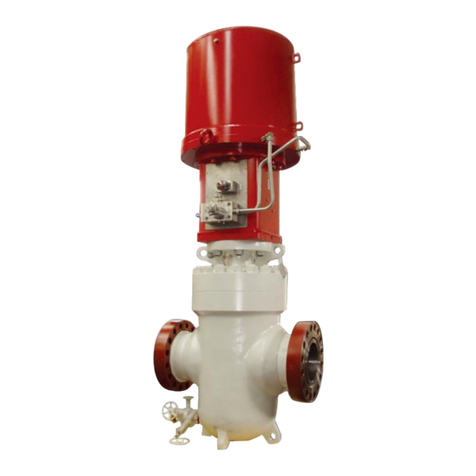
BIFFI
BIFFI HLAS-C Series User manual
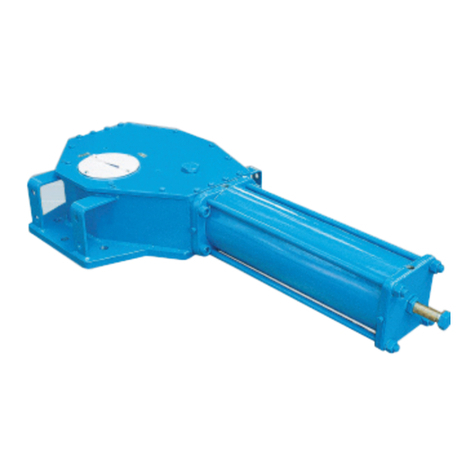
BIFFI
BIFFI OLGA Series User manual
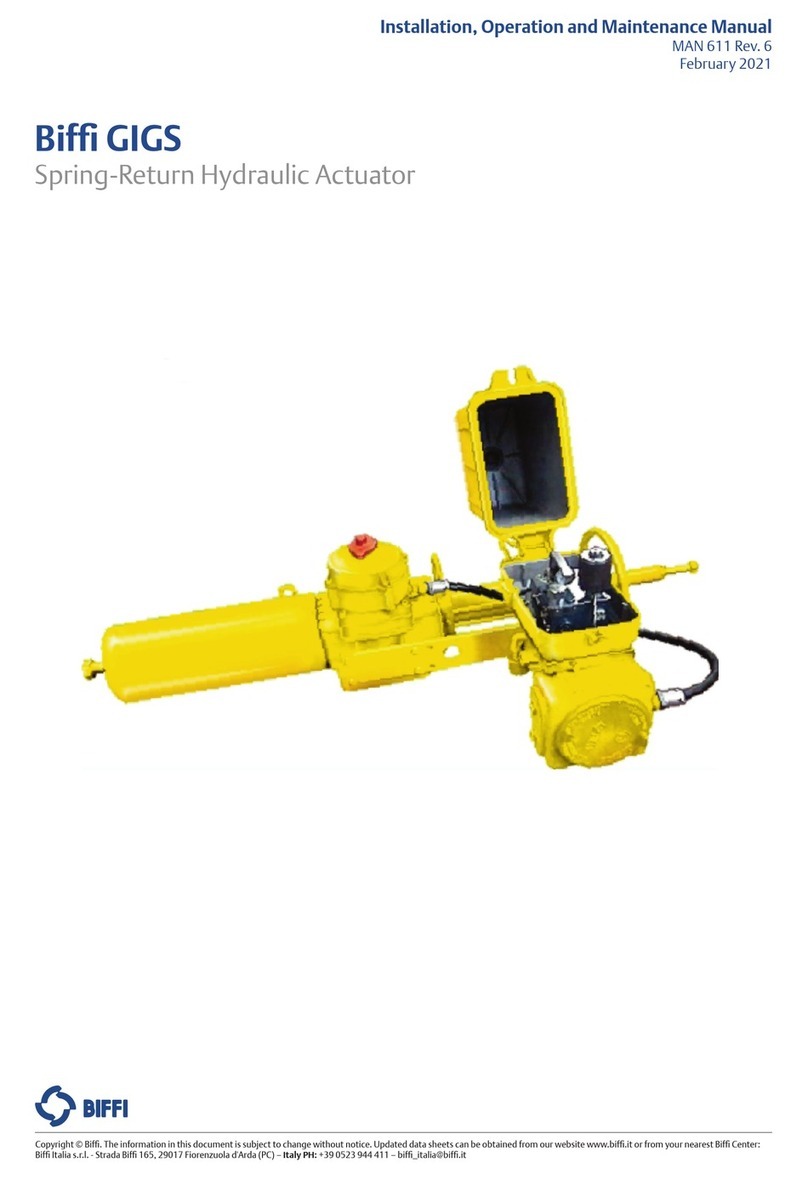
BIFFI
BIFFI GIGS Series User manual
BIFFI
BIFFI ICON3000 Series User manual
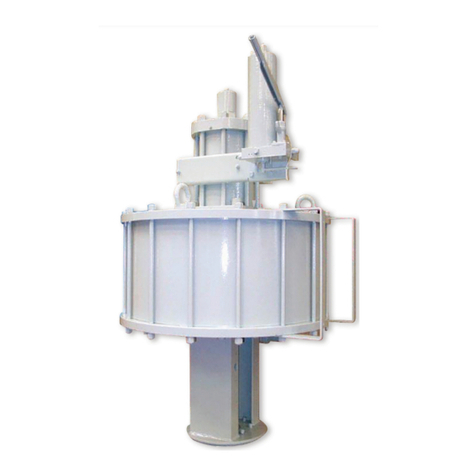
BIFFI
BIFFI PLA User manual
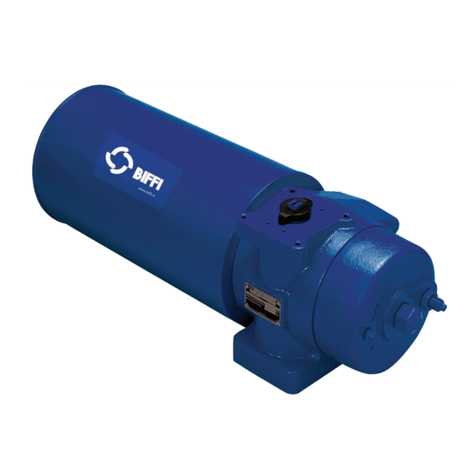
BIFFI
BIFFI FCB Series Operating instructions
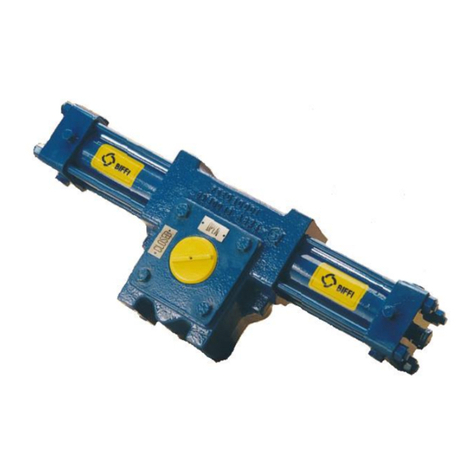
BIFFI
BIFFI RPHD User manual

BIFFI
BIFFI RP14 User manual
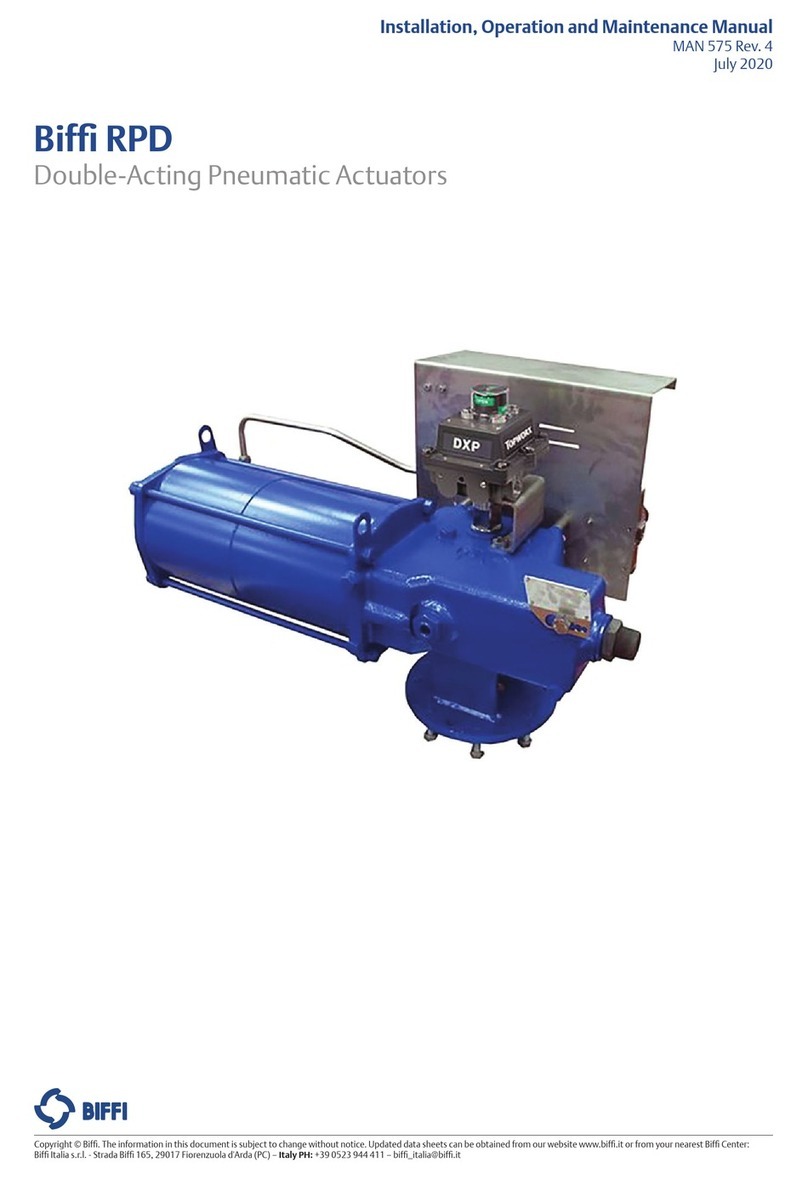
BIFFI
BIFFI RPD Series User manual
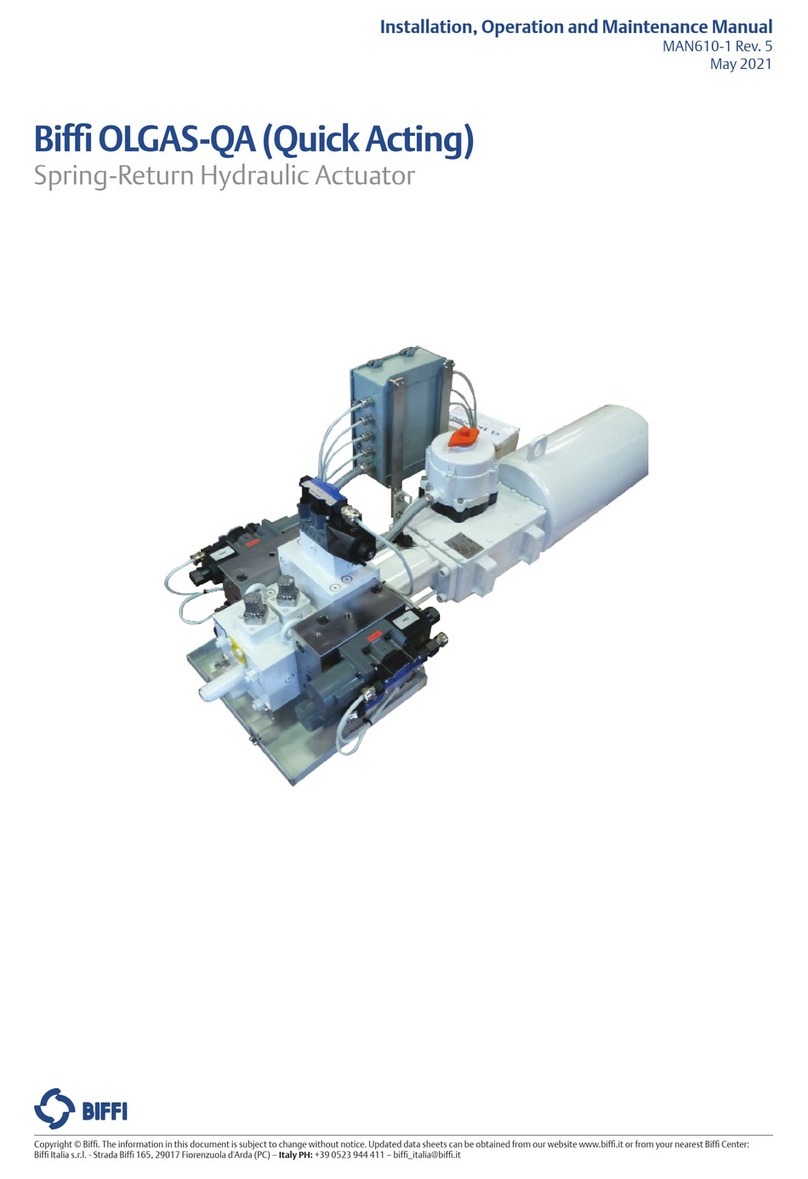
BIFFI
BIFFI OLGAS-QA User manual
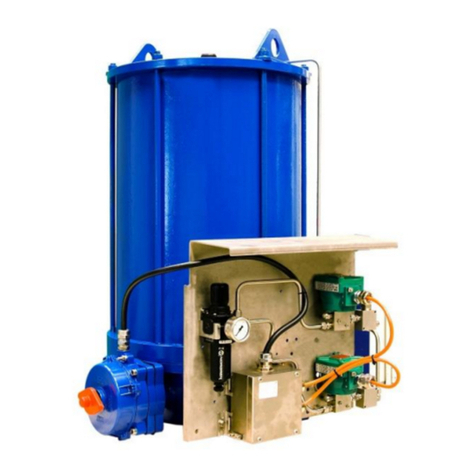
BIFFI
BIFFI TPS Series User manual
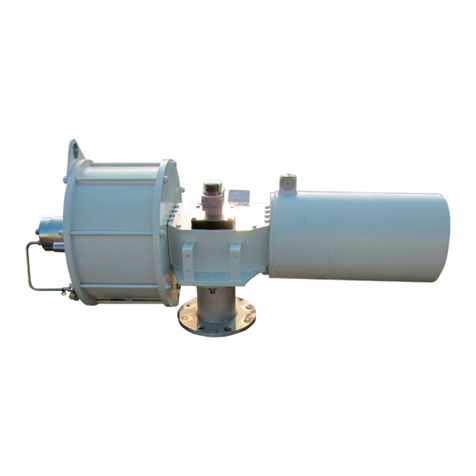
BIFFI
BIFFI ALGAS-QA Series Manual
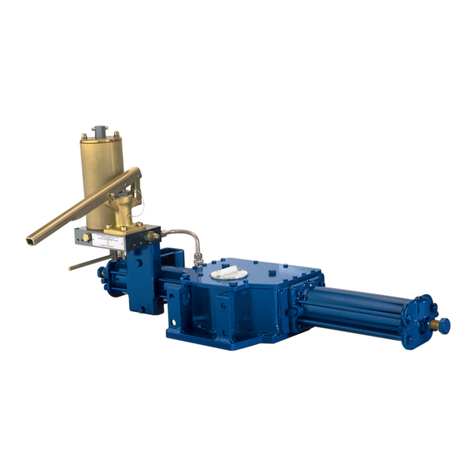
BIFFI
BIFFI GIG User manual
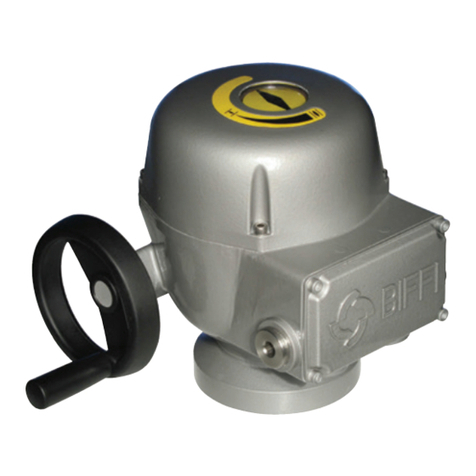
BIFFI
BIFFI F02 manual
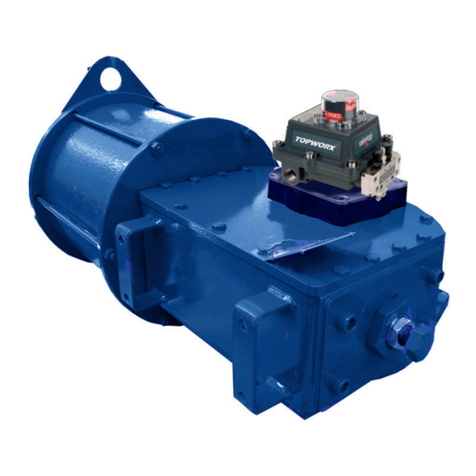
BIFFI
BIFFI ALGA-EAC Series User manual
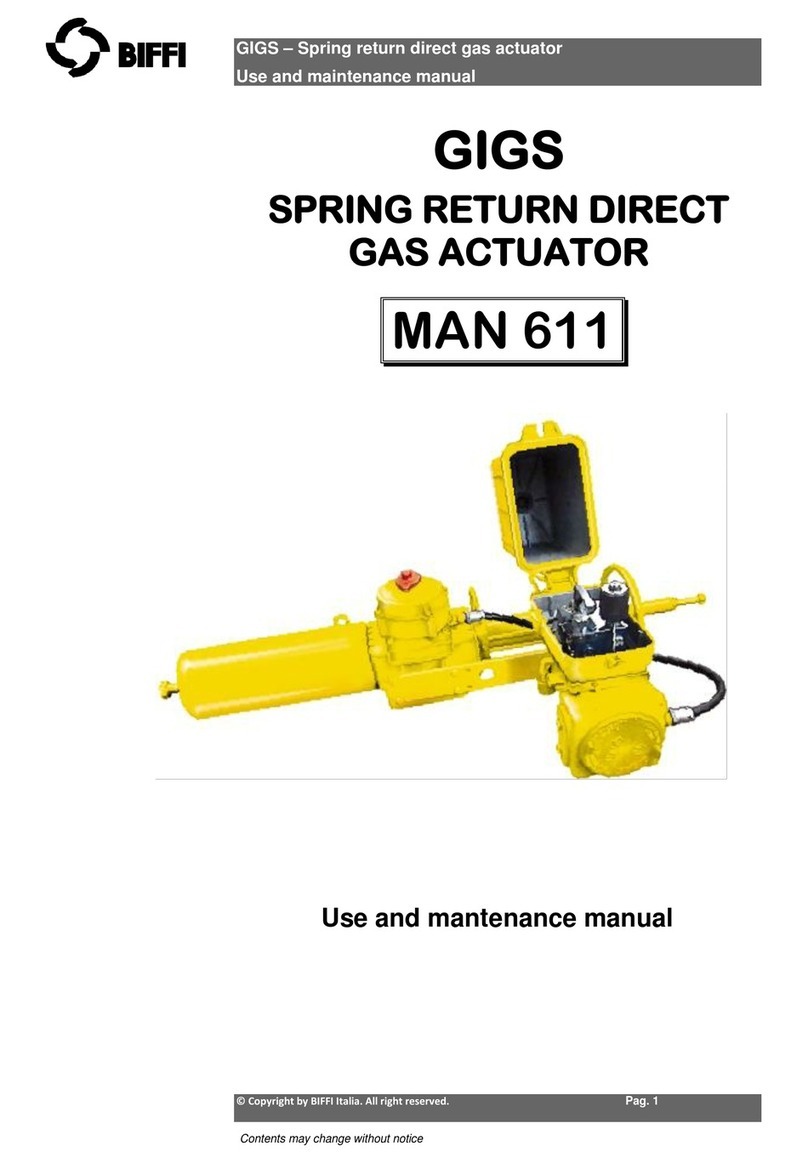
BIFFI
BIFFI GIGS 0.3 User manual
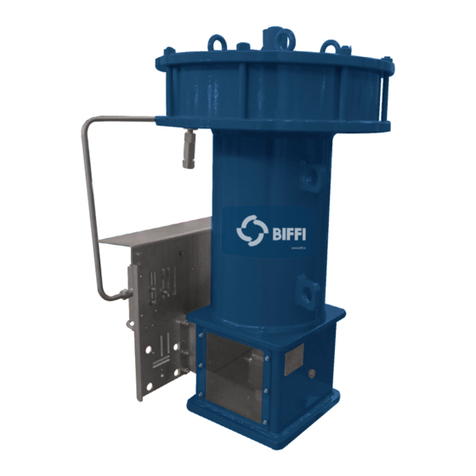
BIFFI
BIFFI PLAS Series User manual
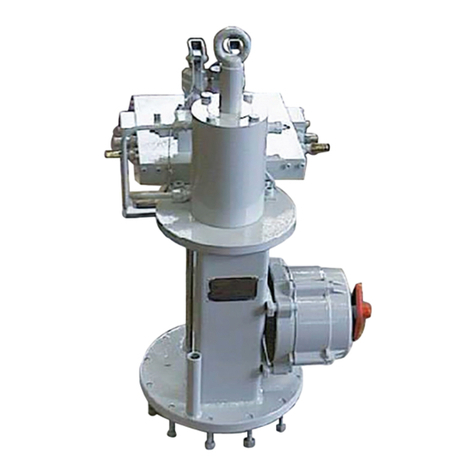
BIFFI
BIFFI HLA Series User manual
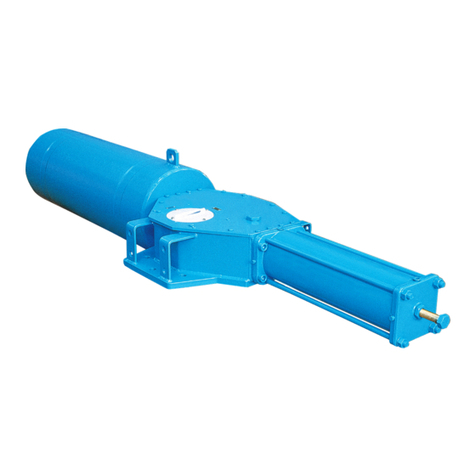
BIFFI
BIFFI OLGAS User manual
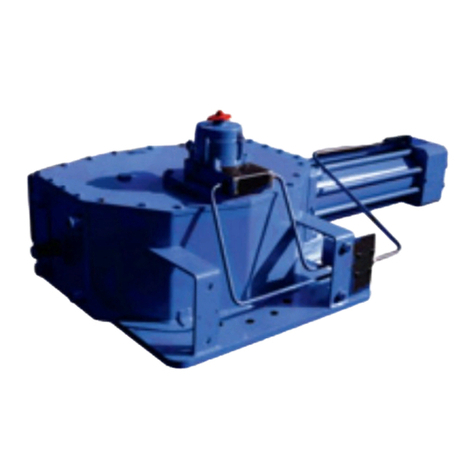
BIFFI
BIFFI OLGA-H User manual
